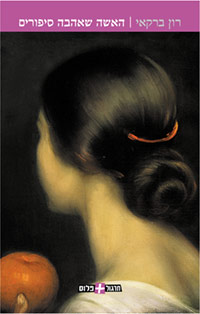
The Woman Who Loved Stories
Pasionario Litvak, the hero of this novel, is an Israeli scholar of the Spanish Civil War. During the 1930s, Pasionario`s father left his native Palestine to join the fight with the anti-fascists in Spain, and he never reconciled himself to their defeat. He even named his son Pasionario after the light of his life, the revolution`s heroine, La Pasionaria. As an adult, inspired by his father’s struggle, Pasionario is drawn to the land that expelled the Jews in the 15th century, where he then burrows himself in its archives; in Madrid he even meets the aged La Pasionaria. However, his colorful personality and lust for life suits his name better than the more popular image of an aloof, even-handed academic. After becoming emotionally involved with his subject, he now focuses his interest more on people rather than on events, on improving the present rather than on the past. Pasionario also frequents the bars and cafיs of Salamanca, where he meets fascinating people and flirts with a variety of clever, independent women. One of them is Viki, an Israeli supporting herself by prostitution, who loves listening to stories so much that it is becoming a sort of addiction. She returns to Israel with Pasionario, but leaves him eventually to find a husband. Parting from the woman who so loved his stories upsets Pasionario’s delicate emotional balance, and he drifts into extremes. The idealist in him resolves to undo the historic evils of the Spanish Civil War and heal old wounds. He returns to the archives in Spain, where he steals letters from a fallen soldier and tries to deliver them to their addressees who are still alive. He fails, the theft is discovered and he is deported to Israel. There he enters a mental hospital and organizes a rebellion of the patients against the management and medical staff. This colorful, humorous novel deals with the fine line that divides madness from sanity, obsession from desire, and an outdated idealism from the drab ridiculousness of everyday life.

